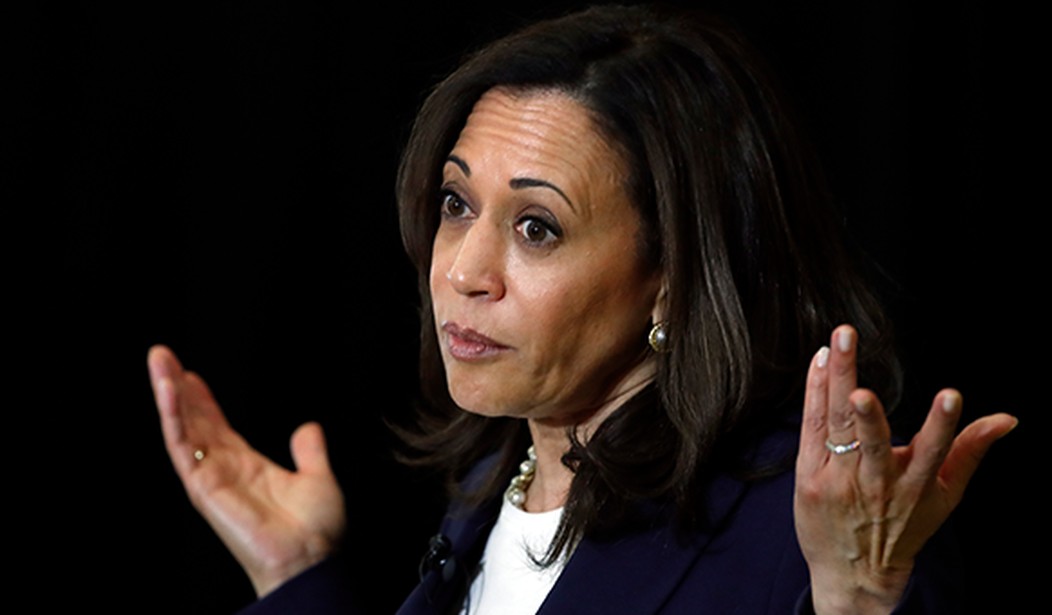Sen. Kamala Harris (D-CA) rolled out a plan to offer grants up to $25,000 to low-income black individuals to help with a down payment and closing costs on home purchases.
At first glance, to the economically uninformed, this seems like it's a good idea. We want as many people as possible to own homes for many obvious reasons.
Why not subsidize low-income buyers with a $25,000 grant? This would mean that it would be easier to buy a house in a low-income area. The more houses that are bought, the higher the demand, and prices will rise, benefitting everyone.
But as with all government programs, there's an unintended consequence.
I’ll illustrate using an example. The numbers I'm using are more for simplicity, and a bit higher than what might be used, but the concept behind them doesn't change.
Suppose a buyer wants to buy a $200,000 house. They put down the required $40,000 down payment, consisting of $15,000 of their own cash and the $25,000 grant. A 4% mortgage results in a $763 monthly mortgage payment.
If the grant were not available, in order to afford the house, the situation would instead be:
A buyer can instead afford only a $75,000 house. They put down the required $15,000 down payment. A 4% mortgage is a $287 monthly mortgage payment.
By giving that grant, it may seem like a terrific move that the buyer can now afford a more expensive house.
Right? Wrong.
Recommended
That grant pushes the buyer into a more expensive mortgage, as well, costing $485 extra per month, plus additional property taxes on the higher value, plus additional cost to insure the home.
It could mean they have to earn an additional $7,000 per year in costs.
Do they have that money? If not, that grant has just pushed them into a house they may not be able to afford to stay in.
That could cause them to have to default, or sell the house. If that happens to a lot of other grant recipients, and they all have to sell their houses, and suddenly we might have another mortgage crisis.
A critic might say, "The bank won't let the buyer into the more expensive house unless their mortgage application would permit it".
Don't be so sure. Banks want to make loans. That's how they make money.
Further, loans that are less than $484,000, which these would be, are insured by the federal government. So the banks are not on the hook.
Who knows who is on the hook? Fannie Mae and Freddie Mac.
Sound familiar? It should.
This is exactly what happened in the mortgage crisis. Harris’ plan sets a terrible example for people of all economic backgrounds. A good life lesson is:
IF YOU CAN'T AFFORD IT, DON'T BUY IT.
It sets a terrible example to tell someone, "If you can't afford it, the government will help you buy it...but we can't help you KEEP it".
Kamala Harris' plan seems like a good idea, but it’s no different than the first domino that was set back in 1977, which would begin the mortgage crisis 30 years later.
It was called the Community Reinvestment Act which "requires the Federal Reserve and other federal banking regulators to encourage financial institutions to help meet the credit needs of the communities in which they do business, including low- and moderate-income (LMI) neighborhoods."
This legislation had the unintended effect of banks loosening underwriting standards, because they would be rated on how well they serviced these communities.
If banks got a bad rating, well, the CRA legislation requires regulatory agencies to evaluate a bank’s "record of meeting the credit needs of its entire community, including low- and moderate-income neighborhoods, consistent with the safe and sound operation of such institution,” within a given assessment area — or geographic location in which a bank’s operations are conducted. According to the Congressional Research Service, banks receive points for engaging in CRA-qualifying activities, like lending to LMI communities, in their assessment areas and are issued CRA performance ratings by the regulatory agencies based on these points. As a means of enforcement, these agencies then factor in banks’ CRA performance ratings when determining whether to approve new bank initiatives, like new branches, mergers, or acquisitions."
So the banks were effectively forced to loosen underwriting standards, and mortgages were given to buyers who had less margin for error on default.
This was not the only reason for the crisis, but was the first piece of it.
And Kamala Harris wants to start it all over again.
So as a voter, your job is to ask:
1) WHY is Harris making this policy suggestion?
2) Does she understand its problems? If not, that should be a concern.
3) Does she understand the link to the mortgage crisis? If not, that should be a concern.
4) Is she simply pandering to the target audience? If so, does that matter to you?
Educated readers know the answer.

























Join the conversation as a VIP Member